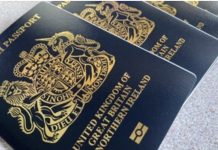With the UK weather being anything but predictable (unless you count predicting a lot of rainfall and cold) it makes sense to want to seek a little sun-escape. European locations tempt a high number of tourists every year, and it also makes for a great winter-sun destination if you’re looking for something a little different (and a little warmer) over the festive season. So, if you’re done visiting the Christmas markets in Manchester this season, and looking for a little sun or a change of scenery instead, here’s your guide for planning a holiday in Europe.
Choose the Best Region for Your Needs
Europe isn’t small, and there are so many great regions, cities and places you can visit, all wonderful and unique in their own ways. That’s why it’s essential that you research the different places before you jet off, in order to make sure you choose the right place for you. Decide whether you’re looking for a beach break, a city break or the biggest change in culture you can possibly find.
Whether it’s hitting the big cities like Paris, or taking in some relaxation in the Costa del Sol with villas in Fuengirola, make sure you find exactly what you need.
Check Your Currency
Just because it’s Europe doesn’t mean that everywhere accepts the Euro. If you’re not familiar with your currency differences and have little experience traveling abroad, be sure to check the accepted currency in the place you are visiting. It’s also a good idea to pay attention to the following:
- Deal comparison – you can compare deals from different currency exchange options to get the best deal for your money
- The exchange rate – there may be a time when rates fluctuate meaning there can be a better time to change your money over
- How the currency compares to the pound – it can be a little daunting to deal with currency which is significantly different (for instance, if 100 currency is equal to £1) as it can make you feel as though you’re overspending when dealing in higher numbers. Learn what currency translates to so you understand the price of items when you’re in Europe and don’t risk overspending
Check Your Passport
If you don’t already have a passport, you will need one in order to travel to Europe. Be sure to check how long a new passport process takes, so that a new one can arrive in time for your trip. Also, double check the passport requirements of the country you are visiting, as some require at least 6 months left on your current passport.
Research Public Holidays
Other countries will celebrate different holidays, and this may affect when attractions and shops are closed, especially over the winter season. If you’re looking for a New Year’s trip, be sure to check what is open on New Year’s Day, as many public attractions may be closed.
Be Clear on Time Differences
It may only be a small difference, but you will need to be aware of it, especially when planning a schedule and need to be at the airport at the correct time for your flight. Most European places near to the UK like France and Spain will be one hour ahead, but it will vary the further away you go, so always be sure to check before you travel.







